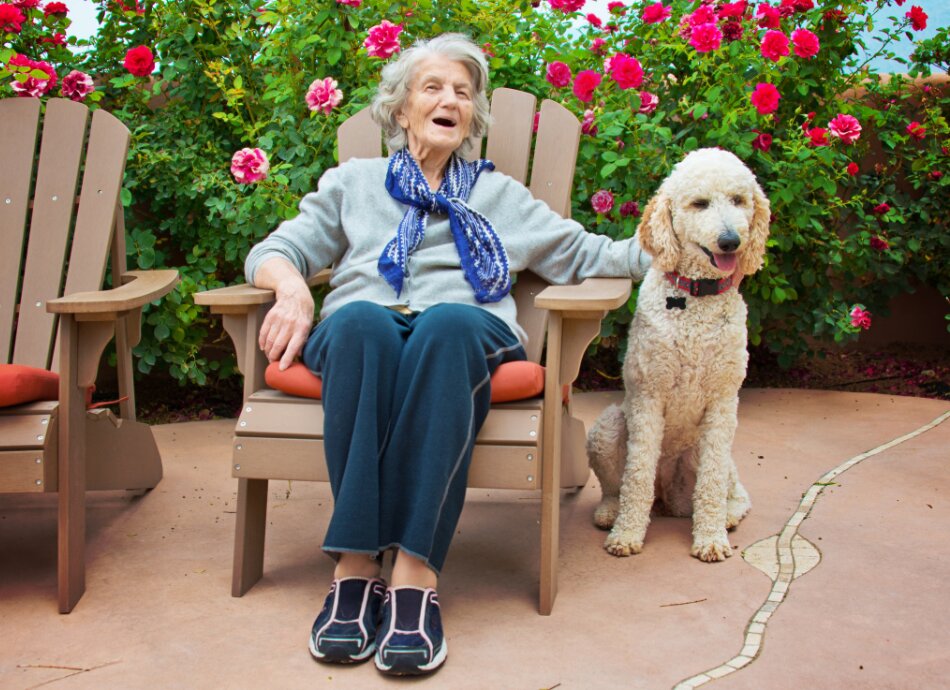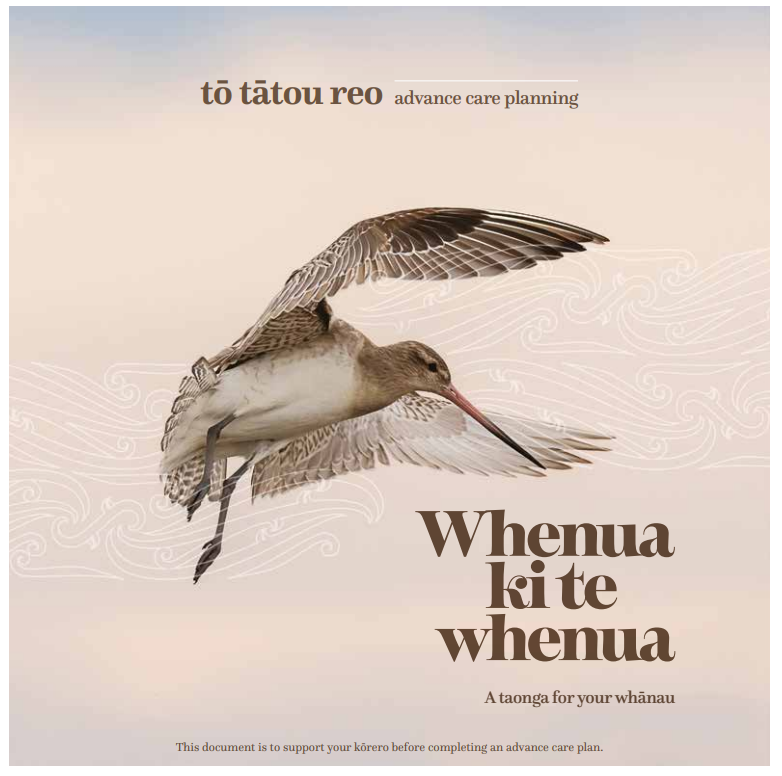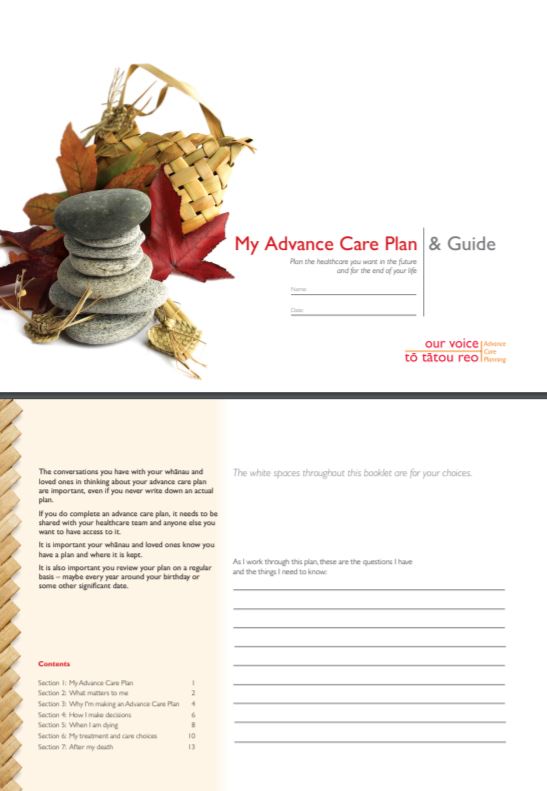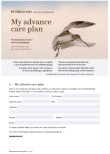You can now add Healthify as a preferred source on Google. Click here to see us when you search Google.
Advance care planning
Key points about advance care planning
- Advance care planning is the process of thinking about, talking about and planning for future health care and end-of-life care.
- Advance care planning is important for people and their families at all times during the health care journey.
- This page provides information about what advance care planning is, and includes guides and resources to get you started.

Thinking, talking, planning, sharing and reviewing what matters to you, can better prepare you, your whānau and healthcare team for what the future might hold.
Talking to your whānau and healthcare team ahead of time is especially helpful if you are in a situation where you can no longer tell them yourself, such as if you're in an advanced stage of dementia or when something unexpected happens.
You may find that thinking about what matters most to you and your wishes and care priorities in advance can help you take part better in your future health care decision making. You can then write down your thoughts in an advance care plan, which is a written record that includes your preferences for your future health care.
Advance care planning can be done when you are perfectly healthy and want to prepare for the worst-case scenario or because you have a long-term condition or life-threatening illness.
The 5 steps involved in advance care planning include thinking about, talking about, planning for, sharing and reviewing (see below). Advance care planning is a voluntary process.
Advance care planning is a process of thinking and talking about your values and goals and what your preferences are for current and future health care. Advance care planning helps you to understand what the future might hold and say what health care you would or wouldn't want, including end-of-life care. Read more about advance care planning(external link).
Advance care planning is important because:
- it encourages conversation about what matters to you and your whānau
- it can help you and your whānau understand what is happening to your health and what that might mean for you in the future
- it can help you and your whānau feel more in control and reduce anxiety as you face future health events
- it enables you to say how you would like to be cared for if you're not able to tell people this yourself, eg, if you have advanced dementia or when something unexpected happens.
Many people choose to write down their advance care planning wishes in an advance care plan. The creating your plan(external link) section on the advance care planning national website has lots of tools to help you think about and write down what matters most to you.

Image credit: Canva
An advance care plan is a template where you can write down your advance care planning wishes, including the things that are important to you and the types of medical care and treatment you do or don't want to receive in the future, including at the end of your life.
An advance care plan tells your family and your healthcare team about the treatment and care you want if you are no longer able to tell them yourself.
An advance care plan(external link) can include things such as:
- Who you are and what's important to you.
- What's happening with your health now and what you might expect might happen in the future.
- Your spiritual and emotional needs.
- How you like to make decisions and who you would like your healthcare team to talk to if you were unable to tell them your wishes yourself.
- Where you would like to be cared for – at home, hospice, aged care or hospital.
- The ways you would like those caring for you to look after you.
- Whether you wish to donate organs.
- They type of funeral you'd like.
- Where your important papers and documents are.
- Whether you have an enduring power of attorney (EPOA) or advance directive – an enduring power of attorney is someone you appoint legally to make decisions on your behalf about your personal and financial matters when you can no longer speak for yourself. Read more about enduring power of attorney.(external link)
In Aotearoa New Zealand the information you've written in your advance care plan has legal standing. This means your healthcare team has a responsibility to take the things you have said are important to you into consideration when they're planning your care or suggesting treatment options.
Advance care planning is for everyone. Advance care planning is just as important when you are well and healthy as when you develop health problems. We all have our own unique priorities, goals and preferences that shape how we live and influence how we would like to be cared for in the future and at the end of our life.
Thinking about
The first step in advance care planning is thinking about what matters to you and what you would like for your future health care. This can include things such as:
- your values, beliefs, priorities, worries, what helps you through tough times, and what abilities are so important to you that you can't imagine living without them.
- Treatments that you would or would not want and what you want your care to focus upon.
- Who you would want to be involved in decision about your health if you were too unwell to be part of the discussion.
- Where you would like to spend your last days.
Here are some tools to help you think about advance care planning(external link).
Talking about
Once you have thought about what's important to you, it's a good idea to talk about them. You should involve the people you want to know about your wishes for care and treatment if you can’t tell them yourself. This could include your whānau and friends, your Enduring Power of Attorney for care and welfare if you have appointed one, your healthcare provider or specialist (particularly if you have been diagnosed with a serious illness) and other members of your healthcare team.
Planning for
When you know what's important to you and what you want others to know in the future, it's a good idea to write it down for your whānau and healthcare team to refer to in the future if you can't tell them yourself.
Tools to help you write down your wishes(external link) can be found on the advance care planning website.
Remember, you don’t need to complete every section in the 'My advance care plan and guide booklet', just those that feel relevant to you.
Sharing
Once you have made your plan, make sure you share it with your key whānau members, Enduring Power of Attorney and your healthcare team. It's important your whānau and other loved ones know you have a plan and where the plan is kept. In many parts of the country, you can ask for your plan to be added to your medical record. Each area of Aotearoa New Zealand has a different process, find out who to contact in your area(external link).
My advance care plan and guide(external link) teaches and guides you in what you need to think about and how to write an advance care plan. You can do this with your whānau and healthcare team or do it yourself and then share it with them. There is also an electronic version of my advance care plan(external link) that you can complete online and email to your family.
Reviewing
It's a good idea to review your plan regularly to make sure nothing has changed for you. People find it useful to decide on a day to review it every year, such as their birthday, Labour day or the time the clocks go back for winter. Every time you make a change, let your healthcare team and anyone who has a copy of your advance care plan know.
Apps reviewed by Healthify
You may find it useful to look at some falls prevention apps and long-term condition apps.
Video: Arthur Te Anini's story (English subtitles)
Arthur Te Anini has written an advance care plan for his future health and end-of-life care. In this video, he talks about how writing down what he wants to happen has given him and his whānau confidence about the future.
(Te Tāhū Hauora | Health Quality and Safety Commission, NZ, 2019)
This video is also available with subtitles in Samoan(external link), te reo Māori(external link) and Tongan(external link).
More advance care planning personal story videos can be seen on the Kia Kōrero | Let's talk advance care planning section on this MyACP page(external link).
Video: Advanced care plan starting the conversion
(The Better Health Channel, Australia, 2015)
Video: Advance Care Planning – act while you're still healthy
(The Better Health Channel, Australia, 2015)
To tātou Reo | Advance care planning(external link) Health New Zealand | Te Whatu Ora, NZ
Advance care planning(external link) Age Concern, NZ
Hospice NZ(external link)
Advance directives and Enduring Powers of Attorney(external link) Health & Disability Commissioner, NZ
Shared goals of care(external link) To tātou Reo | Advance Care Planning, NZ
Create my plan(external link) Te Hokinga ā Wairua End of Life Service, NZ
Brochures
My advance care plan – short version without guide(external link) To tātou Reo | Advance Care Planning, NZ
My advance care plan(external link) Health Quality & Safety Commission, NZ
Living with life limiting illness Palliative Outcome Initiative, NZ, 2020 English & Arabic [PDF, 896 KB], English & Simplified Chinese [PDF, 906 KB], English & Hindi [PDF, 802 KB], English & Korean [PDF, 965 KB], English & Samoan [PDF, 653 KB], English & Tongan [PDF, 887 KB]
Thinking about advance care planning(external link) To tātou Reo | Advance Care Planning, NZ English(external link), te reo Māori(external link)
Guide to advance care planning To tātou Reo | Advance Care Planning, NZ Samoan(external link)
Advance care planning brochure(external link) Health Quality & Safety Commission, NZ, 2018
Contacts
Regional ACP contacts(external link) To tātou Reo | Advance Care Planning, NZ
This provides maps of regions of Aotearoa New Zealand and links to the contacts for advance care planning in each region who can help with advance care planning and uploading your plan.
References
- Advance care planning(external link) Frailty Care Guides, Health Quality & Safety Commission, NZ, 2023
- Creating your plan(external link) To tātou Reo | Advance Care Planning, NZ
- What is advance care planning?(external link) To tātou Reo | Advance Care Planning, NZ
See our page advance care planning for healthcare providers.
Brochures

Health Quality & Safety Commission New Zealand, NZ, 2021
English, te reo Māori

To tātou Reo | Advance Care Planning, NZ

To tātou Reo | Advance Care Planning, NZ
Credits: Healthify editorial team. Healthify is brought to you by Health Navigator Charitable Trust.
Reviewed by: Jane Goodwin, RN, Programme manager – advance care planning and clinical communications, Te Whatu Ora | Health New Zealand
Last reviewed:





